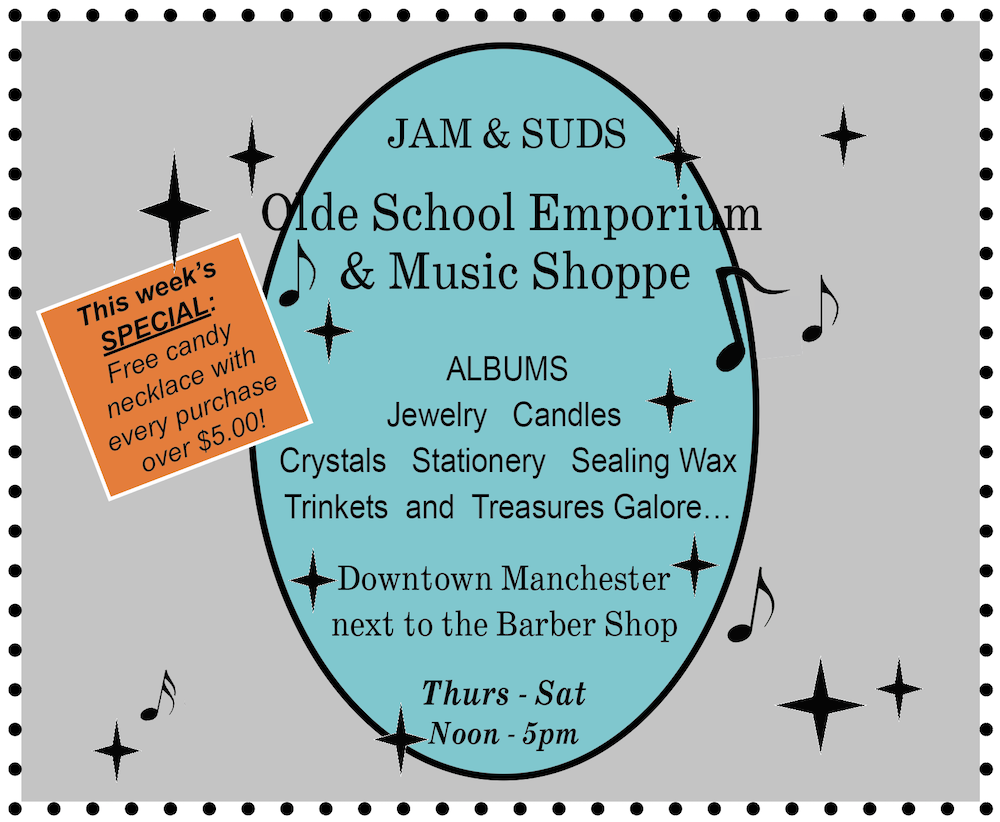Chelsea Adult Learners Institute announces winter/spring classes

submitted by Joan Gaughan, Adult Learners Institute
As the sleet slithers down the window pane, the heating bills mount, and your arthritis wreaks havoc on whatever is left of your holiday cheer, you might want to think of something pleasant. The Detroit Lions pulling off another three-game winning streak next season comes to mind. OR, how about allowing an ALI class to stir the stiffened corpuscles of your brain, bring out the wild side of your moribund imagination and let loose the dazzling social skills that have lain dormant for these many cold, gray months. Adventures await the bold, the curious, the intrepid — as well as the rest of us who simply want to “feed our heads,” as Alice would say.
To take you to a warmer climate, Charlie and Jill Taylor will take you on a virtual as well as in-person trip to the Outer Bahamas, an archipelago about 50 miles east of Nassau. But instead of big cities and fancy resorts, you will go to small villages, undeveloped beaches and bonefish flats. You will visit Eleuthera and then to its smaller neighbor, Harbour Island, and then to the Current and Spanish Wells. Through photos and movies, you will see the crystal-clear water surrounding the archipelago and visit Whale Point, where the waves crash into coral cliffs on one side while a quiet bay nestles on the other. Suntan lotion is not required for this trip.
Last Fall, Susan Nenadic took us on a virtual tour of Pere Lachaise Cemetery in Paris. This time she is continuing her examination of the stories written on the stones of the Graceland Cemetery in Chicago, the birthplace of the skyscraper — no, it wasn’t New York — and the home and final resting place of families with names like Armour, Palmer, Field, McCormick and more. Her two-session Zoom class in early April will culminate in a sequence of “surprises” which, she says, deserve to be better known.
There are other trips closer to home. In his in-person class on April 6, Bill O’Reilly will continue his pictorial and narrative exploration of Chelsea’s history, Then and Now. As president of the Chelsea Area Historical Society and a professional genealogist, he has many stories to share about the buildings and places we think we know.
Grace Shackman has led her classes on many fascinating explorations of our local architecture. This term she will examine the history of transportation in Washtenaw County from stagecoaches to motorized vehicles. She will also discuss how much different modes of transportation have changed our lives from the ubiquity of countless gas stations to the many connected businesses such as auto parts manufacturers and car dealerships. And then to discussions of the future of the automobile industry itself. What might electric vehicles bring?
Many of ALI’s trips are into the past.
In the past two terms, John Hauger has taken us into the early twentieth century through music. Starting with the “Roaring Twenties” and then continuing last Fall with the music of the Great Depression in the 1930s, he has shown how so much of our history is expressed through our music. This Winter/Spring term, he will continue his journey through that century with the Music of the 1940s — the decade of World War II and its aftermath. And a decade when radio brought us Bing Crosby, Dinah Shore, Kate Smith, and songs like “Don’t Sit Under the Apple Tree with Anyone Else but Me.” Humming along is not forbidden.
The twentieth century also saw the birth of the movies. The first silents were often accompanied by a theater organ one of which is a magnificent, recently restored instrument in the Michigan Theater in Ann Arbor. Perhaps no one can be identified so closely with that organ as Henry Aldridge, who will showcase it and perhaps also explain the difference between a theatre organ and the ones you hear in church.
The seventy years between 1770 and 1840 not only saw the French and American Revolutions as well as the full-throttled peak of the Industrial Revolution, but also what might have been an even greater cultural upheaval as the Age of Enlightenment gave way to Romanticism. The title of Edwin Hoffman’s three-part in-person class in May, The Triumph and Failure of Reason suggests that the intersection of art and politics made for a very “bumpy ride” through those tumultuous decades.
Did you ever wonder why you were “at loose ends” when you tried to “break the ice” at a party? Or have you ever “gone on a wild goose chase?” Where did these phrases come from? Louis Saalbach explains the origin of these and other common words and phrases that we use every day in his two-part in-person class in early March. And you may find that you are unwittingly quoting Shakespeare.
Elizabeth Thoburn’s four-part Zoom class in March on World Mythology explores another dimension in our understanding of the world around us. Tales of Mesopotamian, Greek, Roman, Norse and Japanese heroes and deities not only entertain but they also have helped not only the ancients but we ourselves make sense of the world around us.
Greg Peter will take us not only back in time but also on a journey across the present and into the future as he talks about Evolution. Although he is a certified veterinarian, this is not merely about Darwin or monkey trials. Rather, this two-part in-person class in March is about the process of bottom-up development and the resultant emergence of — everything — whether it is in the realm of ideas or human action.
The Valley of the Pines, located near Montague, Michigan, about twenty miles north of Muskegon was developed by a man named Joseph Sadony. Doctor Richard Howlin describes the thought and work of this fascinating genius who was a philosopher, a scientist, a correspondent with Mahatma Gandhi and Theodore Roosevelt, and so much more.
One of the finest guitars made anywhere is the Banner Gibson which can sell for thousands of dollars. But did you know that they were made in Michigan? And largely by women? John Thomas tells the story of the Kalamazoo Gals who had everything to do with making the Gibson guitar. John will bring a Gibson and play a few tunes on it. And he will also bring a very special guest with him to this free class at the Chelsea District Library on May 1.
The month of May will also bring Hank Muir’s eclectic assortment of Ends and Odds. His three in-person classes in May will include videos featuring Black musicians, female composers of the Great American Songbook, as well as all kinds of tales of musical plagiarism, drama, little-known family relationships, comedy, cinematic fakery and more. Hank’s knowledge of our cultural heritage, along with his delightful commentary, make his classes a lot of fun.
Doug Baldwin is a retired special education teacher with a doctorate in optometry and a master’s degree in blind rehabilitation. As far as he knows, he is the only blind rehabilitation specialist to write books about Helen Keller, arguably, one of the most fascinating women in twentieth century America. In his in-person class on April 21, Dr. Baldwin will provide five insights into this remarkable woman’s life and what her life can teach us. These are: …her Christianity and her “rewired” brain as well as esotericism as ancient wisdom, developmental levels of consciousness, and navigational consciousness theory.
Last year, the owner the Garden Mill, Jennifer Fairfield gave us a class on growing and cooking with herbs. She is following that in late April with an in-person class that will show us how to have colorful gardens all year long. Yes, even in Michigan.
Climate change is a reality we can no longer ignore. Understanding the role the planet’s oceans as well as our own Great Lakes play is critical for understanding how to address that reality. Cheryl Wells offers Part Two of her journey into the oceans and the marine issues they present.
Red Riding Hood and the three little pigs have given wolves a most unfortunate reputation. Ann Beyer hopes to change that by introducing us to the wolves of the Ambassador Packs at the International Wolf Center in Ely, Minnesota, where she has worked on wolves’ habitat and helping to socialize Ambassador pups. These animals play a central role in the Center’s mission to teach us about wolves and their relationship to wildlands and to humans. You will be introduced to some special wolves and their stories … and they will not be coming to you in sheeps’ clothing.
If you attend Alex Elkins’ class on St. Patrick’s Day, you may find that the dizziness and loss of balance you are experiencing are not the result of imbibing too much of the “crayture” but are related to the dysfunction of your inner ear. Dr. Elkins will discuss the symptoms, diagnosis and prevention of dizziness and imbalance as well as how to prevent the balance problems related to aging.
Hearing loss affects nearly 430 million people worldwide and is the most common sensory loss from birth. In her Zoom class on March 3, Hearing Loss and Cochlear Implantation, Dr. Vicki Gonzalez will discuss normal hearing mechanisms, the symptoms of hearing loss and what you can do if you have difficulty hearing. She will highlight the role of hearing aids and cochlear implants in the treatment of hearing loss.
Developed nations use 10-20 times more energy per capita than under undeveloped nations, and most of it comes from fossil fuels. It has been said that Energy equals Life. David Konkle, who has served as Ann Arbor’s Energy Coordinator for twenty years, knows a good bit about increasing energy efficiency and utilizing renewable energy. In "Energy in Crisis, What now?", his in-person class on March 28 will focus on the importance of making informed choices that, in the next ten years, are critical to the survival of human civilization.
Zoom classes can be connected by using your smart phone or computer. Information will be provided by email to registered students only prior to the beginning of the class.
In-Person classes will be limited by location space and will follow all Covid-19 safety measures in accordance with the governor’s guidelines.
Because the Adult Learners Institute is staffed entirely by volunteers, the cost of the classes is reasonable. Catalogs containing more information about these classes along with registration information and forms have been mailed and are also available at the Manchester District Library and other locations throughout the Five Healthy Towns area. Or you can call (734) 292-5540.
Registration is by MAIL-IN ONLY. Mail your registration form (one for each person) along with a check made out to ALI of Chelsea, MI, Inc. to Adult Learners Institute, P.O. Box 134, Chelsea, MI 48118.
Have fun nourishing that fascinating thing inside your head called a brain!








You must be logged in to post a comment Login